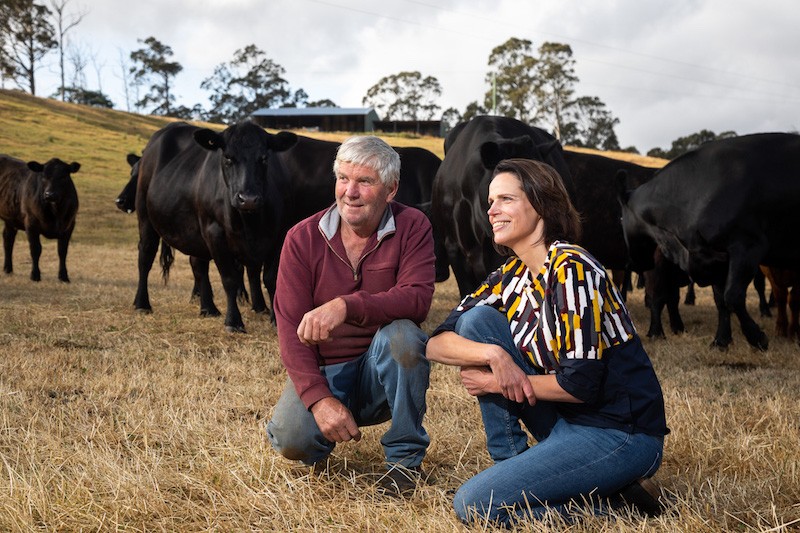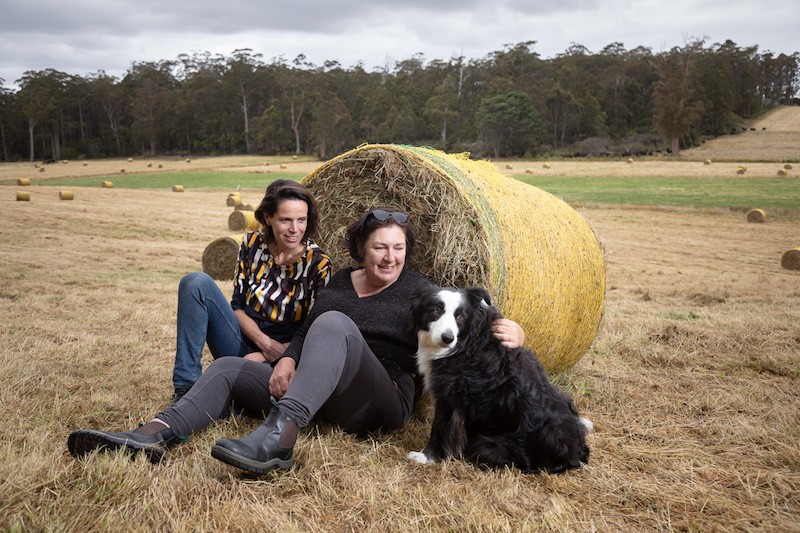Liz Everard, 2019–2020 Hocking Fellow, reflects on how COVID highlighted the potential of nature-based interventions.
When I started my Hocking Fellowship project in late 2019, I intended to research a number of therapeutic or care farm communities that exist in the United States and Ireland. My aim was – and still is – to explore how this model of care could be provided in the Australian context. Unfortunately, the COVID pandemic has put my travel plans on hold.
As the vir us has spread rapidly around the world, disrupting our familiar realms of work, education and play, many of us face a binary choice: to hunker down at home, or to go outside.
us has spread rapidly around the world, disrupting our familiar realms of work, education and play, many of us face a binary choice: to hunker down at home, or to go outside.
Physical distancing rules mean heading outdoors has become one of the few activities left for those wanting to escape their house. An unexpected benefit of this situation is that people around the world are spending more time in nature. Studies have shown that spending even just 20 minutes per day in nature can lower stress hormone levels, boost self-esteem, and improve mood. Nature is a welcome relief from the increased worry and tension many might be feeling right now.
For some, spending time in nature might involve going for a run, or taking a walk in the park. For others, it is spending time in their garden, or simply sitting under a tree.
The mental health outcomes of spending time in nature have long been documented. They include reduced depression and anxiety; improved concentration, attention and cognitive restoration; and increased happiness, satisfaction, and quality of life. In fact, these positive effects are so well-recognised that more and more doctors are issuing ‘nature prescriptions’ to help treat a range of conditions, including: heart disease, hypertension, high cholesterol, diabetes, chronic stress, depression and anxiety, insomnia, and PTSD.
I am hopeful the COVID crisis will shine a light on the health benefits of nature, and will result in an increase of ‘nature prescriptions’ – particularly in the mental health sector.
Care farming is a perfect example of a ‘nature prescription’. A 2016 paper published by Natural England on the role of nature-based interventions in mental health care detailed the exciting prospect that ‘care farming could be part of a new solution, however, increasing the awareness of, and access to, these interventions is challenging’.
One of the many benefits of care farming is that participants spend a lot of time in natural, open spaces. This not only provides the restorative effect of nature, but also enables opportunities for physical activity, resulting in improved self-esteem and confidence.

So, what exactly is care farming?
Care farming is a type of ‘green care’ (this is an umbrella term used to describe a variety of nature-based treatment interventions that promote physical and mental health and well-being through contact with nature). Care farms provide a variety of accommodation options, as well as psychiatric treatment and a full continuum of care for adults living with complex mental health issues.
Care farming is defined as the therapeutic use of farming practices. Care farms utilise the whole or part of a farming property to provide health, social or educational care services through supervised, structured programs of farming-related activities.
Care farming is very popular in Europe, with numbers growing rapidly. There are around 1,100 care farms in the Netherlands, a 1000 in Norway, 900 in France, 675 in Italy, 300 in Belgium and 230 in the UK. The types of farms and client groups vary widely and serve people living with issues such as depression and other mental health issues, dementia, intellectual disabilities, substance misuse, as well as people who are tied to the justice system.
Participation in care farm programs has proven to be especially beneficial for people living with mental health issues. A care farm offers a non-clinical, home-like environment that reflects ‘normal’ life and provides opportunities for social interaction, skills-development, and meaningful employment.
Work provides a sense of purpose and structure. On a care farm, people are given choices and develop a sense of ownership and responsibility for the tasks they do. These activities allow people living with mental health issues to learn about themselves, their capabilities, and to develop self-confidence. They are safe places where people can practice being part of a community, in a space where they are not judged, but are accepted and respected. There is communal recognition that everyone belongs and everyone’s contributions matter to the wider care farm community.
In the United States, care farms are known as therapeutic farm communities. They combine the care farm model with the therapeutic communities approach. There are a handful of large-scale residential therapeutic farm communities in the US that offer recovery-oriented programs for people with complex mental health issues such as schizophrenia, schizoaffective disorder, bipolar disorder, and severe depression.
The oldest of these communities is Gould Farm, a 700-acre property in Massachusetts, established in 1913 by husband and wife, Will and Agnes Gould. They welcomed guests who were experiencing emotional and psychiatric vulnerabilities to join them in working on the farm and sharing the joys and challenges of daily life in a kind, healthy community.
Though some things have changed over time, guests continue to be welcomed into an authentic, multi-generational community comprised of lived experience peers, volunteers, staff members, and their families who all live together. With community-based programs in both Boston and the Berkshires, Gould Farm also offers transitional services that assist guests to move back to their own home environment.
The success of Gould Farm’s model of care also inspired the establishment of Hopewell, a therapeutic community in Ohio that provides a farm-based residential treatment program for adults with complex mental illness.
Hopewell founder Clara Rankin was unable to find suitable treatment for a family member experiencing mental health issues until he stayed at Gould Farm. She was so impressed with how the experience changed him that she decided to create a similar setting in Ohio. With the help of a group of devoted professionals and friends, she raised the necessary funds, and found a suitable property. Hopewell opened in 1993.
In Ireland there are around 100 care farms, most of them offer day programs for a variety of client groups. Slí Eile, however, is unique. Set in in County Cork, Slí Eile, which means ‘another way’ in English, provides a supportive, recovery-focused living environment for people experiencing mental health difficulties. It operates through two non-profit charitable companies. One acts as a housing association and provides accommodation, the other provides a variety of individual and group support services – such as facilitating a range of social enterprise activities, including a fully-certified organic farm and market garden, a dairy, and a bakery.
I look forward to visiting these therapeutic and care farm communities once travel restrictions are lifted. The aim of my research is to explore how a similar model of care could be provided in Australia. I hope this project will bring us one step closer to changing the status quo in our mental health system, and galvanise our policymakers to try new approaches that have already proven successful in other parts of the world. The various care farm approaches move away from the highly medicalised models seen in our hospital system and, instead, provide opportunities for people with mental health issues to be part of a community and participate in a natural environment.
For more information and to follow Liz’s journey, visit: facebook.com/carefarmingaustralia.
Photos by Peter Mathew.

